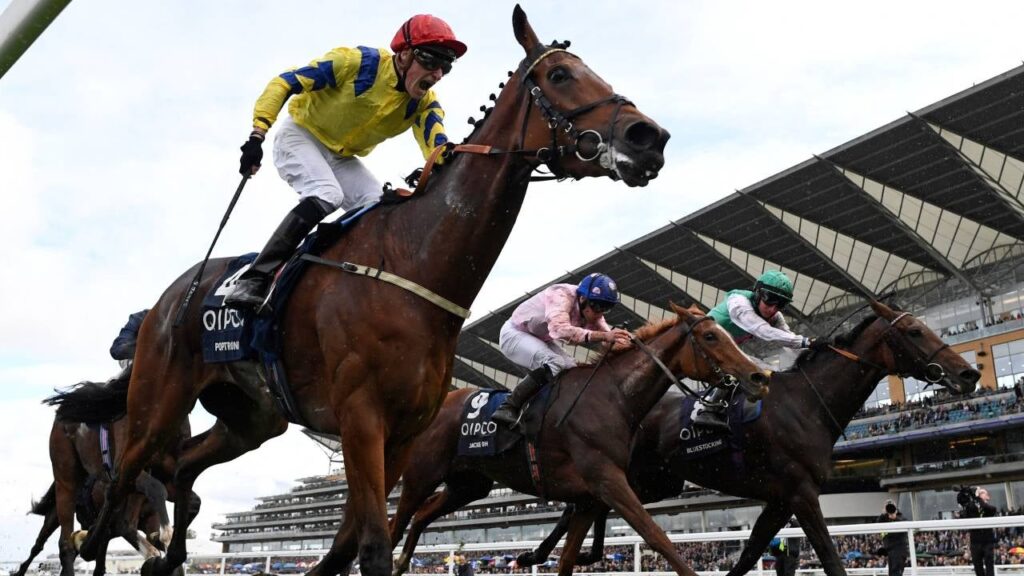While it might not seem like it at first, options and sports gambling are both bets. In each, you’re making a side bet between gamblers on the outcome of some event — either the outcome of a game or the performance of a stock or other security. But while sports may be a wildly popular way to gamble, options trading offers smart traders many ways to get an edge and score big.
Here are some key similarities and differences between options and sports betting, and why options trading is a great setup for smart traders.
Options vs. sports betting: How they work
Options trading
With options, you’re betting on the price movement of a stock or exchange-traded fund (ETF). Options allow you to take either side of the trade.
- You can buy call options and put options and have the chance to multiply your money if the stock moves favorably.
- You can sell calls and puts, generating an upfront payment for the potential obligation to buy or sell a stock later at a preset price. This payment acts more like insurance in case the underlying stock does something the option buyer is protecting against.
Trading options is a zero-sum game. It’s a bet made between two traders as to what happens to a stock. The gains of the winner exactly offset the losses of the loser, not factoring in costs such as taxes or commissions (which function much like the cut a sportsbook takes to facilitate a bet). In fact, some of the best brokers for options trading have reduced commissions on options to zero.
Sports betting
Sports betting comes in a variety of different types, some of which let you multiply your money and others which allow you to roughly double your money with a successful wager. For example, a basic wager such as who wins a football game may allow you to approximately double your money. In contrast, bets with a variety of competitors — such as horse races or picking who wins the Super Bowl at the start of the season — may allow you to multiply your money many times.
More specialized bets could also offer huge payouts, though the odds are very long that you’ll win. For example, a parlayed bet — where a bettor combines two or more bets into one and must win each of them — could return an utterly immense amount of cash, if right. Other bets such as an exacta or trifecta (picking first and second place or first, second and third place, respectively) take place on a single event, such as one horse race, and can quickly make (and lose) money.
Key similarities of options and sports betting
Below are some key similarities of options trading and sports betting:
- Potential to multiply your money: Both options and sports betting have the potential to massively multiply your money if you make the right move.
- A market sets the price: With options you’re betting for or against the price of a stock and how it performs, so it’s a question of whether the market is accurately pricing the stock. With sports gambling, the payouts are set by the relative bets of the bettors, with the house or bookie taking a cut (aka the vig) of the total betting pool.
- Both bets expire after a preset time frame: A bet expires after the event that it’s based on ends (a game, a race, etc.). Similarly, an option expires when it reaches expiration. In both cases, traders or bettors know when the bet is over and accounts can be settled up.
- The less likely an outcome is, the higher the payout: In both sports betting and options trading, the less likely result — as judged by the positions of the bettors or traders — pays off at a higher rate than the more likely one.
- Smart players are looking for mispriced risk: Whether bettor or trader, players are looking for wagers that are mispriced, and having good knowledge of the actual outcome — not just the priced-in outcome — helps them determine what’s mispriced.
Key differences of options and sports betting
Below are some of the key differences between options and sports betting:
- With options you can play any side: In sports you can bet on one team or another to win or play a horse or horses to win, in various combinations. In contrast, in options trading you can bet on the stock to move one direction or the other (by buying options), as well as effectively take those bets (acting like the house) by selling options.
- With options you can make well-informed long-term bets with good odds: The biggest advantage for smart traders is that you can have a huge edge if you can understand a business well enough to know that it’s significantly mispriced. You can purchase long-term options, which may be significantly mispriced, and then profit enormously when the stock moves favorably. In other words, you can bet with high levels of certainty on something that’s likely to be a huge long-term winner.
- Options trading can affect the outcome: In sports betting, the action doesn’t affect the outcome of the event. The Patriots don’t win the Super Bowl because more people bet on them. In contrast, stock prices do move in response to the options market, as market makers hedge their positions and traders adjust their stock position based on trading.
- Your knowledge can continue to hold value over time in options: Beyond just the mechanics of how options or sports betting works, your knowledge of individual companies can continue to hold value for years if you trade options. If you understand how a company will continue to be successful, you can exploit that knowledge for a long time in the option market. Sports knowledge must be continually kept up to date and can shift markedly from game to game or race to race.
- With sports betting you lose only what you bet: If you make a sports bet, you’re only on the hook for the money you put up. With options, however, it’s a different story. If you buy an option, you’ll never lose more than your purchase price. However, if you sell an option, you could lose much more than you ever earn from it, and may be forced to buy or sell stock at unfavorable prices to settle up the short option.
Bottom line
Options trading offers some of the advantages of sports betting, such as the ability to multiply your money, but offers a way to do so with greater reliability. But whether you’re betting on sports or the options market, it’s important to do so only with money that you can afford to lose.
Read the full article here
















